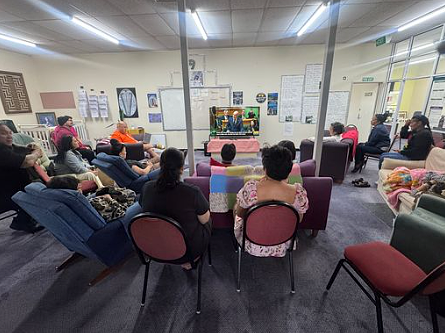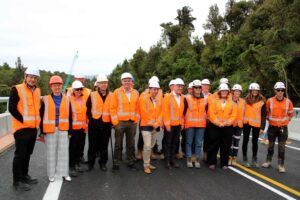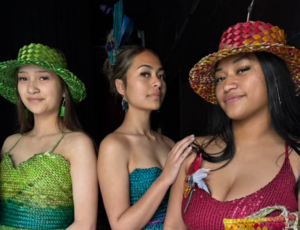Survivors of abuse in state and faith-based care gathered at Te Whāriki Manawāhine o Hauraki Hauraki Women’s Refuge on November 12 to witness the broadcast of the government’s national apology.
For some of those who gathered, it was also an acknowledgement of their right to exist in their own identities.
The apology, presented by Prime Minister Christopher Luxon, came in response to a 16-volume report tabled in Parliament in July. The report outlined the results of the Royal Commission of Inquiry’s six-year investigation into the abuse of children, young people, and adults in state and faith-based care between 1950 and 1999.

Hauraki Women’s Refuge leaders were significant contributors to the commission’s investigation, the organisation said, and it was particularly focused on ensuring the voices of survivors with diverse gender and sexual identities were not forgotten.
During the inquiry, the Hauraki refuge developed a 66-page independent research report titled As a Kid, I Always Knew Who I Was: Voices of Takatāpui, Rainbow and MVPFAFF+ survivors.
Takatāpui is the Māori term for a member of the LGBT+ community, while MVPFAFF+ is an acronym encompassing the diverse gender and sexuality expressions and roles across Pacific cultures.
In the report, Takatāpui, Rainbow and MVPFAFF+ survivors described the experiences of indigenous people in state care whose identified gender or sexuality was outside the “Pākehā and Western, cis and binary shapes, forms and ideas that dominate our society”.
The report outlined the harm that was done to those communities, from opposition to their identities within care settings to psychological and sexual abuse, conversion practices, medicalisation and neglect.
It shared their hope for a positive future where survivors were adequately supported and the care system improved to provide a safer place for those who needed it.
Hauraki Women’s Refuge researcher Paora Moyle said the elevation of the distinct voices of courageous Takatāpui, Rainbow, and MVPFAFF+ survivors who shared their powerful testimonies in the Abuse in Care Inquiry was vital to Aotearoa New Zealand’s journey toward truth and reconciliation.
“We work to uphold the voices of the most marginalised whānau in our communities and were approached by the Royal Commission to undertake this research,” Paora said.
“Takatāpui, Rainbow and MVPFAFF+ identities are neither well understood nor well accepted in mainstream siloes of our society.”
Included in the report was a list of proposed solutions for the state, including stripping churches of charitable status, monitoring mechanisms, a code of ethics for clergy, redress and reparation, and the need for significant and meaningful enduring change.




